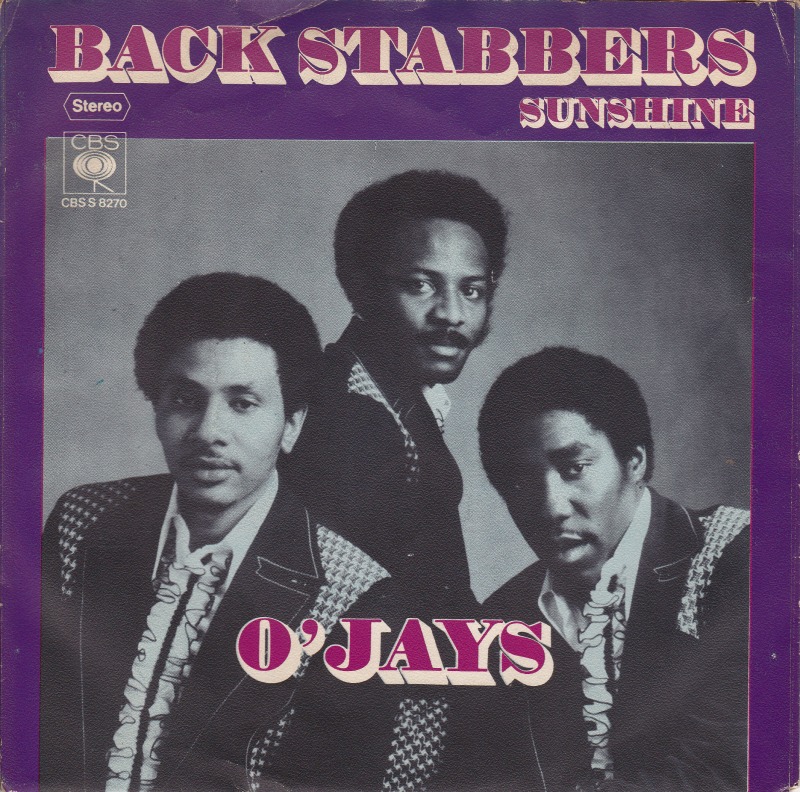What happens when we see others succeeding at work? Does it trigger inspiration, or does it trigger workplace jealousy?
I am grateful that I have seen countless examples in life and at work when the presence of excellence is so inspirational that others realize what may be possible for them, and they act accordingly. This may play out as extra effort, extra training, more research, and other healthy and appropriate behaviours to “level up” and live one’s best life. Most of us have seen this in action, and it is glorious. Everybody feels wonderful.
Sometimes within a friend group of colleagues, seeing a breakthrough inspires others to apply for promotions, take on higher profile assignments, accept speaking invitations, write articles, or even write entire books.
This blog was inspired by a LinkedIn post that caught my attention. The post featured an excerpt from an old song by the O’Jays called “The Backstabbers,” and it struck me as so true:
“They smilin’ in your face
All the time, they want to take your place
The back stabbers (back stabbers) …”
Unfortunately, many people who experienced success also see others express jealousy at their accomplishments, instead of admiration, respect, or happiness. Cue the discordant music.
I’m from Toronto, so I can’t help but think about a more recent song called “Fake Love” by Drake, in which he expresses a similar sentiment but with some extra nuance:
“I’ve been down so long
It looks like up to me …”
This line mirrors the uncomfortable and discouraging feeling that many under-appreciated and under-employed people feel in a profound way. Often, these “devalued” people are also members of a traditionally underrepresented group or have multiple intersecting identities that make them double, triple, or multiple minorities.
They are treated like they are at the bottom of every meaningful hierarchy, regardless of their abilities or contributions. This phenomenon is well articulated and substantiated in a book called Caste: The Origins of Our Discontents by Isabel Wilkerson. One of the key messages in the book is that race in (North) America is a caste system like those in India and Nazi Germany.
I fully acknowledge that mistreatment in the workplace because of jealousy can be universal. It’s obvious that people can be jealous of others who are non-racialized, heterosexual, able-bodied, Christian, etc.
This is well described in research done in January and February 2023 by Women and Influence+, who focused especially on a gendered version of workplace jealousy that impacts women. Their study of 4710 women from around the world found that women who are successful and capable are being bullied and belittled and made to feel as though they don’t belong.
 One of the main conclusions is that women’s success is under attack in workplaces around the world. The top reasons given for attacking women’s success included jealousy/envy (77.5%), sexism/gender stereotypes (74.0%), and a lack of confidence/insecurity (72.7%).
One of the main conclusions is that women’s success is under attack in workplaces around the world. The top reasons given for attacking women’s success included jealousy/envy (77.5%), sexism/gender stereotypes (74.0%), and a lack of confidence/insecurity (72.7%).
The study also found that the more accomplished a woman is, the more likely she is to face aggression, not only from those in positions of seniority but also from her peers. For example, one respondent to the study reported she “was told in a previous job by a former Chair of my department that my achievements and hard work made everyone else look bad.”
Women and Influence+ did not report any disaggregated data that would highlight how prevalent this is for racialized women, however, from what I have seen and heard from others both personally and in my role as a career coach and executive coach, this is an especially serious problem for racialized women, particularly Black women.

Leila Jackson, right, on the first day of the Supreme Court confirmation hearings for her mother, Judge Ketanji Brown Jackson, center.Credit…Sarahbeth Maney/The New York Times
It’s finally become better understood that racialized people often need to be exceptionally qualified and capable to gain access to certain desirable professional opportunities. In the U.S. the recent Supreme Court confirmation process for nominee Judge Ketanji Brown Jackson is a vivid and public example. Canadian examples can be found in this 2-minute Global News video and through the Black Executives Network / Le Réseau des exécutifs noirs (BEN/REN).
Naturally, when anyone starts a new job, especially a prestigious one, they bring their “A Game.” They work hard and do their best so that they can establish a reputation for being capable and hard-working. When you’re part of an underrepresented group, the stakes are often higher. You’re trying to offset the negative impact of discrimination and tokenism to prove that you belong and that you’ve earned your place.
Things get complicated and downright dangerous when people who are (quietly) looked down upon are clearly stellar. While getting established and performing well, particularly in new roles, a person’s success and accomplishments often inspire workplace jealousy, envy and mistreatment.
Another line from Drake’s song “Fake Love” comes to mind:
“That’s when they smile in my face;
Whole time they wanna take my place …”
In response to poor treatment at work, the hard-working and successful woman is likely to experience lowered self-esteem (55.6%), disengagement at work (55.4%), resignation (64.4%) and be unwilling to share their achievements (29.4%).
It’s a real loss when people who were ready, willing, and able to contribute end up dealing with so many counterproductive workplace behaviours which are a significant and negative distraction, or they end up leaving completely.
Do you need help navigating the world of work? Contact Dr. Helen today for a free and confidential initial consultation by phone, email, or via direct message on Twitter, Facebook, or LinkedIn.
More than career coaching, it’s career psychology®.
I/O Advisory Services Inc. – Building Resilient Careers and Organizations.™






